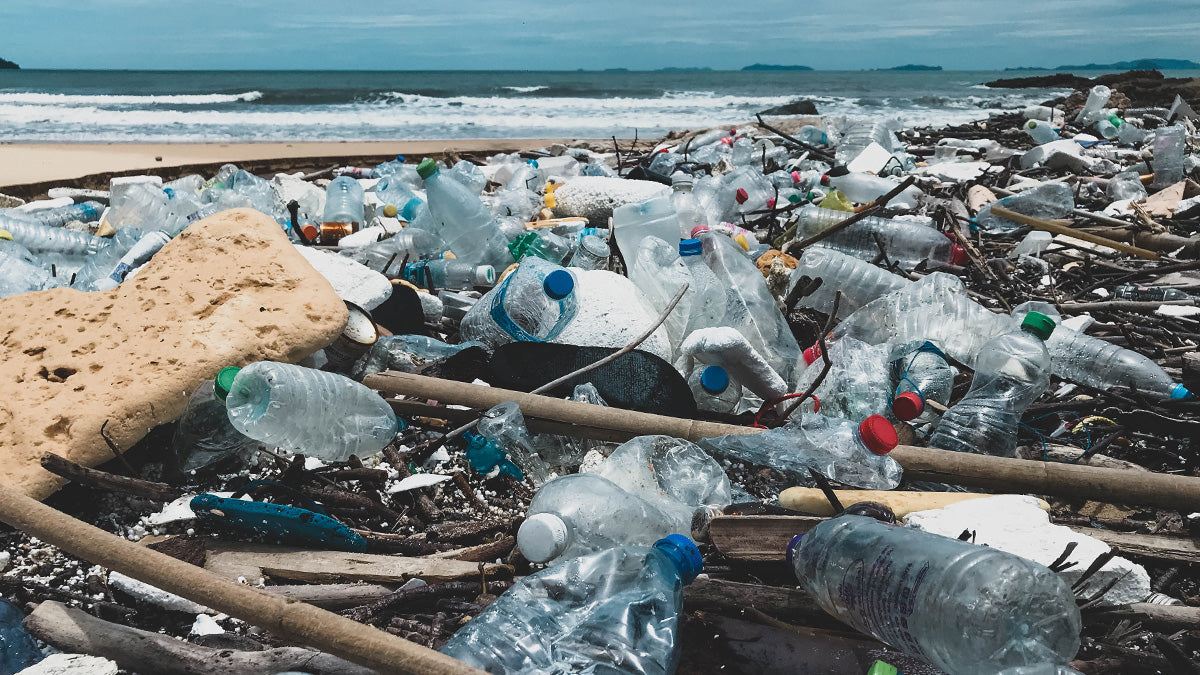Where is our plastic going?
You know the facts and figures. At Oceanworks we repeat them ad-nauseum, but the problem persists. Each year, 400 million tonnes of plastic waste are produced across the world. And every minute, one million plastic bottles are sold while alarmingly, 98 percent of these bottles are STILL made from virgin plastic, rather than recycled plastic. Developed nations like the U.S. consume the most plastic products and packaging, and create the most waste.
At Oceanworks, we are curious as to where all this waste goes. The recycling and disposal rates simply don't match production output. For instance, the largest importer of U.S. plastic scraps are recycling companies in Canada – and vice versa – but it’s not clear where that plastic ultimately ends up. Are we simply swapping trash? The inconvenient truth is, after playing a game of trash-swap, and siphoning the the easiest to recycle plastics, many recycling companies end up sending large volumes of waste overseas, to developing nations where poorer economic factors and a lack of environmental regulations create perfect conditions for these regions to accept our trash and literally become the world's waste-bin. Despite official statistics and recent regulations forbidding the export of plastic waste to developing nations, an LA Times report has uncovered a robust black market for skirting these laws, leaving the poorest countries shouldering the environmental and public health burden.
Boiled down to the dark and dirty facts, this is, quite simply, waste colonialism.
Plastic Waste Mountains
Imagine living on the outskirts of one of the world’s largest dumping grounds, where discarded plastic from the wealthiest consumer nations is dumped on your doorstep. Where plastic mountains quite literally loom on the horizon.

For many communities in developing countries like the Philippines, Malaysia, Indonesia, Thailand, Turkey, waste picking as a means to earn income and to combat the tsunami of plastic has sadly become a way of life. With what picked-through waste scraps remain, the easiest way to manage these plastic mountains is to burn most materials, releasing carbon emissions, and toxic fumes into the air. For people living in these economically fragile regions, the local impact on the environment and human health is dire, as are the consequences globally. But as colonialism dictates, the communities with little economic power are most saddled with plastic waste, with little say in the matter.
It’s a human rights issue that urgently requires a solution. Demands for plastic are only increasing, with plastic production expected to reach 1,100 million tonnes annually within the next 25 years. While virgin plastic production will exponentially place more pressure on landfill-adjacent communities and ecosystems, the emerging market of plastic resins [and products] derived from post-consumer recycled waste opens the door to a solution.
Solution
The burden of solving this problem must, of course, not fall to the vulnerable nations who have been beleaguered with the world’s plastic waste. Instead, it's time for the world’s biggest plastic polluters – the multinational corporations that profit from generating the highest volume of virgin-resin, single-use plastics – to embrace solutions that exist today that help remediate plastic pollution and return it to a circular economy. That starts with corporations getting radically transparent about their global plastic footprints, and aggressively investing in plastic reclaimed from the most negatively impacted regions.
Instincts might tell you it’s best for western businesses to source PCR content domestically, but the solution is much more complicated than that. Plastic waste has become a global issue with most, if not all, of the fault laying at the feet of countries in North America and Europe. So while domestically sourced materials should certainly be part of a company's supply chain mix, it is incumbent on the west to help remediate what has become one of the greatest environmental, climate, and human rights issues of our time.
Acknowledging the global plastic pollution crisis – and who it impacts the most – is the first step companies need to take. Then, they must accept there’s no simple path forward and instead adopt corporate goals and action plans that emphasize progress over perfection. Programs to fund plastic waste removal from ocean-bound dumping grounds already exist – like Oceanworks’ IMPAC+ plastic offsets program – and, with the right plastic solutions partner, it’s extremely affordable to test out novel resins derived from post-consumer recycled products and recaptured plastic waste.
Time is ticking while the plastic pollution crisis swells even larger.
